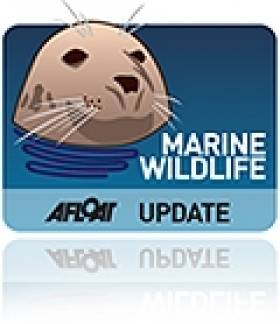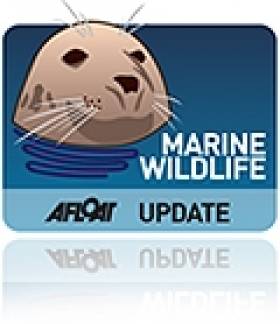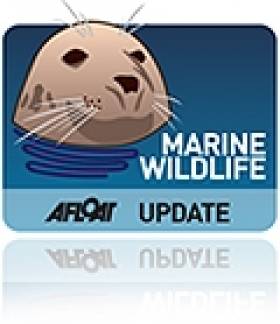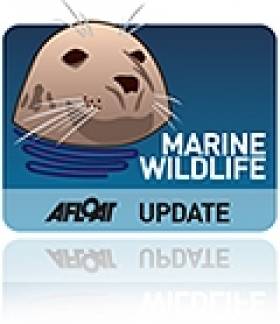Displaying items by tag: stranding
Whale and Dolphin Strandings On the Rise in 2012
#MARINE WILDLIFE - The rate of cetacean strandings on the Irish coast remains unusually high, according to the Irish Whale and Dolphin Group (IWDG).
The group's Cetacean Stranding Scheme recorded 162 strandings in 2011 which, while numbers do vary from year to year, was 25-30 more than anticipated.
And already this year the numbers are up on last year's 'inexplicable' records for the first quarter.
Some 21 strandings were reported to the IWDG in January alone - the highest ever number recorded for that month, well above the average of 13.
February's figures are even more worrying, with 30 strandings reported this year compared to a five-year average of 11.4.
"As we are now well into 2012, it is clear that the numbers have not returned to what we could have considered to be more normal levels," said the group in a statement.
There is as yet no explanation, whether a single cause or a number of factors, for what might be causing this significant rise in strandings of both live and dead animals, although one curious clue is "the number of carcasses which had washed ashore with tail fluke/fins apparently cut away".
In other IWDG news, the group recently announced the receipt of £2,000 (€2,400) core funding support from Scottish-based veterinary X-ray firm BCF Technology Ltd, which funds a number of charities through its BCF Foundation.
Second Fin Whale Stranding for Sligo
#MARINE WILDLIFE - Sligo County Council is considering its options for disposal after the county's second whale stranding of the winter, when a 60ft male fin whale was beached at Agharrow.
A spokesperson told the Sligo Champion that the whale was in an area known locally as Staid Abbey, lying on a smooth rock ledge that slopes down towards the sea, and is a difficult point to access - particularly in the present stormy conditions.
As previously reported on Afloat.ie, a whale carcass was washed up at the end of last month not far from Agharrow at Raughley. The Irish Whale and Dolphin Group (IWDG) has confirmed that this was the first validated stranding recorded of a fin whale in Co Sligo.
That whale had its flesh removed for fertiliser, while its bones were studied by PhD students from NUI Galway ahead of being buried in a nearby field to allow for the natural decomposition of remaining flesh before future preservation.
Public Needed to Help Record Whale and Dolphin Strandings in UK
#MARINE WILDLIFE - Some 46 reports of stranded whales and dolphins in Northern Ireland are among the thousands recorded across the UK over the last six years, according to BBC News.
A new study co-ordinated by the Zoological Socoety of London (ZSL) shows that some 3,500 cetaceans were stranded on the British coastline between 2005 and 2010.
Though year-on-year figures have fallen overall, is presumed that many more strandings have gone undetected.
Many were found to have died of disease or starvation – particular harbour dolphins.
But human activity such as fishing, shipping and chemical pollution also poses a significant threat to marine wildlife in the waters around the British Isles, said Rob Deaville of the ZSL.
The public is being encouraged to report stranded marine mammals to help create a more accurate picture.
BBC News has more on the story HERE.
Dead Seals Washed Up at Fethard-on-Sea
#MARINE WILDLIFE - The Gorey Guardian reports that the bodies of two grey seals were found washed up last week on Booley Bay beach, near Fethard-on-Sea in Co Wexford.
The two seal pups were found in an emaciated and malnourished state by a beach walker on 27 November.
According to Irish Whale and Dolphin Group chair Kevin MacCormick, dead seal strandings are not unusual at this time of year, particularly after stormy weather, and grey seals have an especially high mortality rate.
Tramua wounds and blood found on the seals were put down to predation by seabirds.
Stranded Whale Dies in Western Scotland
A near-60ft long whale stranded on a beach in Scotland's Western Isles last week has died.
According to The Daily Telegraph, the whale was discovered on South Uist last Monday afternoon.
Despite the best efforts of rescue volunteers from British Divers Marine Life Rescue, the two-tonne creature - believed to be a sei or fin whale - could not be refloated.
Sadly, euthanasia was also ruled out as an option because of the side of the animal.
Death was pronounced on Tuesday, and a post-mortem will now be carried out to find out what may have caused the whale to beach itself.
The stranding comes after two serious incidents in Scotland earlier this year.
A previously reported on Afloat.ie, 25 pilot whales died after a mass stranding at the Kyle of Durness in July, while May saw a lucky escape for another pod of pilot whales at Loch Carman in South Uist.
This time last year 33 pilot whales from a group that almost stranded in Loch Carman were found dead on a beach in Donegal.


































































